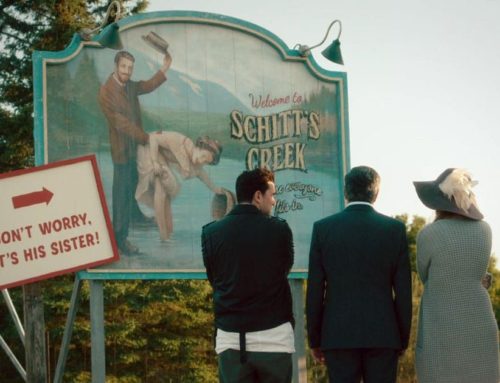This post contains affiliate links.
One of the things I enjoy most about visiting family over the holidays is that I have lots of time to read and think. When I couple this with end-of-year reflection and goal setting for the upcoming year it can be a powerful experience.
One of the books I’ve been reading this trip is Ryan Holiday’s Perennial Seller. Holiday is no chump when it comes to marketing. He’s written many books on marketing, culture, and the human condition. He was even the Director of Marketing for American Apparel. He’s an interesting guy.
In Perennial Seller Holiday is asking what makes some pieces of art and culture last but not others? More than that, he seeks to answer the question, “How can we create and market creative works that achieve longevity?”
These are excellent questions to ask. They also interest me because as a composer I want to write music that makes a difference, but also lasts a while.
Early on in the book Holiday says this:
One of the best pieces of advice I’ve gotten as a creator was from a successful writer who told me that the key to success in nonfiction was that the work should be either “very entertaining” or “extremely practical.” Notice they didn’t say, “Should be very fulfilling to you personally” or “Should make you look super smart” or “Capitalize on some big trend.” Those concerns are either secondary or implied. It’s better to be focused on those two timeless use cases of enjoyability or utility.*
This paragraph stopped me. I re-read it, put the book down to think about it, and then read it again the next day.
If we replace the word “nonfiction” with concert music the paragraph now reads:
The key to success in concert music is that the work should be either “very entertaining” or “extremely practical.” [It’s not that it,] “Should be very fulfilling to you personally” or “Should make you look super smart” or “Capitalize on some big trend.” Those concerns are either secondary or implied. It’s better to be focused on those two timeless use cases of enjoyability or utility.
This is powerful stuff. The argument is not new, either. Musical philosophers have debated the function and use of music for centuries. For Holiday, the difference is in applying these questions to the works of art that last.
A few pages later I found this gem:
Yet far too many people set out to produce something that, if they were really honest with themselves, is only marginally better or different from what already exists. Instead of being bold, brash, or brave, they are derivative, complementary, imitative, banal, or trivial. The problem with this is not only that it’s boring, but that it subjects them to endless amounts of competition.**
When we start writing music that is only marginally better (i.e., the belief that you can do what Hans Zimmer does, but better) and enter into competition with everyone else composing very similar music our work becomes a commodity—something that is essentially replaceable by any number of other pieces of music with little to no regard to who wrote the music.
One thing we can learn from market-based economics is that as access and availability to a given commodity increases (supply) people are ever more reluctant to spend money on it (demand). It drives the price down and composers end up in a race to the bottom undervaluing their service by agreeing to write music for less money than their competitor.
If Holiday is right, and I’m willing to bet that he is, that means the way we write and market our music that people want to play/hear again ,and allows us to avoid the commodification of our music, is to be “very entertaining” or “extremely practical.”
I‘ve been thinking about and writing a lot of concert band and wind ensemble music lately (see my recent three-part series on New Music Box: Part 1, Part 2, Part 3). When I look at the amazing world of band music both of these principles play out.
The music of John Mackey is energetic, challenging, musically satisfying, and yet wildly entertaining. The students who play Mackey’s music constantly ask their directors to program another one.
At the same time, there is a tremendous need for practical music. Students need music for their ability levels and directors need music that is appropriate for ensembles while allowing them to nurture the musical development of their students. Composers who are aware of this have risen to the occasion by writing practical and entertaining music at all difficulty levels.
This is embodied most fully in the literature for very young bands with the growth of method series that have moved beyond what I had as a young musician in the 80s—mostly pedantic writing that taught us musical ideas, but didn’t engage us—to music that is artistically and musically satisfying for the students. Look no further than the Sound Innovation series co-written by Chris Bernotas.
As the director of worship for a small congregation with an amateur choir the need for “extremely practical” music is at the forefront of many of my decisions. I need music that is singable, appropriate for my ensemble, and theologically rich. As my friend David von Kampen (listen to him on the podcast here and here), who is a brilliant choral composer, tells me when he composes sacred music for liturgical or congregational usage, he is always asking the question, “does this work?”
For David it’s more than being concerned with making the musical ideas work, it’s about everything being extremely practical. The end result is music that is beautiful, moving, and people want to sing and use.
After my travels this holiday season (which include a trip to Orlando to hear a high school play a recent composition at Disney! I’m so excited…) I’m going to start a new piece for alto saxophone with piano commissioned by a former student who needs a piece to fill out a recital. For me the easy thing would be to write a piece that fits the context: an academic work for an academic recital.
But I don’t want to do that.
I want to write a piece that is “very entertaining.” I want her to enjoy playing it. I want the audience to enjoy listening to it. Does this mean I will pander and hit only the low-hanging fruit? Absolutely not. I have plans to make this challenging. However, I want to write a piece of music that will last. I want the response to be, “Play it again!”
I don’t think the idea of writing entertaining music and music that is challenging are mutually exclusive. And I’m ok with the idea that you may not like it because I’m not writing it for you. This brings us to the issue of audience, which I don’t want to get into too much in this post, but as Holiday points out the best art divides the audience “between people who don’t like it and people who really like it.”***
I also don’t thing a piece has to be both entertaining and practical. It can be one or the other, but it certainly doesn’t hurt if it’s both.
Moving forward into 2018 one of my compositional goals is to ask myself the following questions. These apply to all my projects no matter if it is a new concert work, film score, jingle, or whatever.
- Is this piece entertaining? Will the performers enjoy playing it? Will the audience want to hear it again?
- Is this piece practical? Is it serving a need?
You may be thinking at this point, “What about music for music’s sake?”
What about it? First, an argument can be made that there is no such thing. All music is composed within a context that gives the piece meaning: year of composition, geographic location, society, gender of composer, local, regional and world events, commissioning parties, and more all come in to play. Music is not created in a vacuum. Music for music’s sake removes the consideration of two of the three partners required for the creation and performance of music: the composer, the performer, and the listener. No matter how you feel about the role of the audience—and whether you should pay attention to them or not—making it all about the composer seems like a bad idea.
Second, do you really want to write music for music’s sake? If so, who will want to listen to it? And why are you writing it? What’s the point?
What are the questions you ask yourself while you’re writing? What do you think it takes for a piece of music to be long lasting?
Why are you doing what you’re doing and writing what you’re writing?
As Seth Godin said somewhere (I don’t have the reference on hand):
“If you quit making your art tomorrow, would anybody notice? Would anybody care?”
*Ryan Holiday, Perennial Seller: The Art of Making and Marketing Work that Lasts, New York: Portfolio/Penguin, 49.
**Ibid., 53.
***Ibid., 55.





